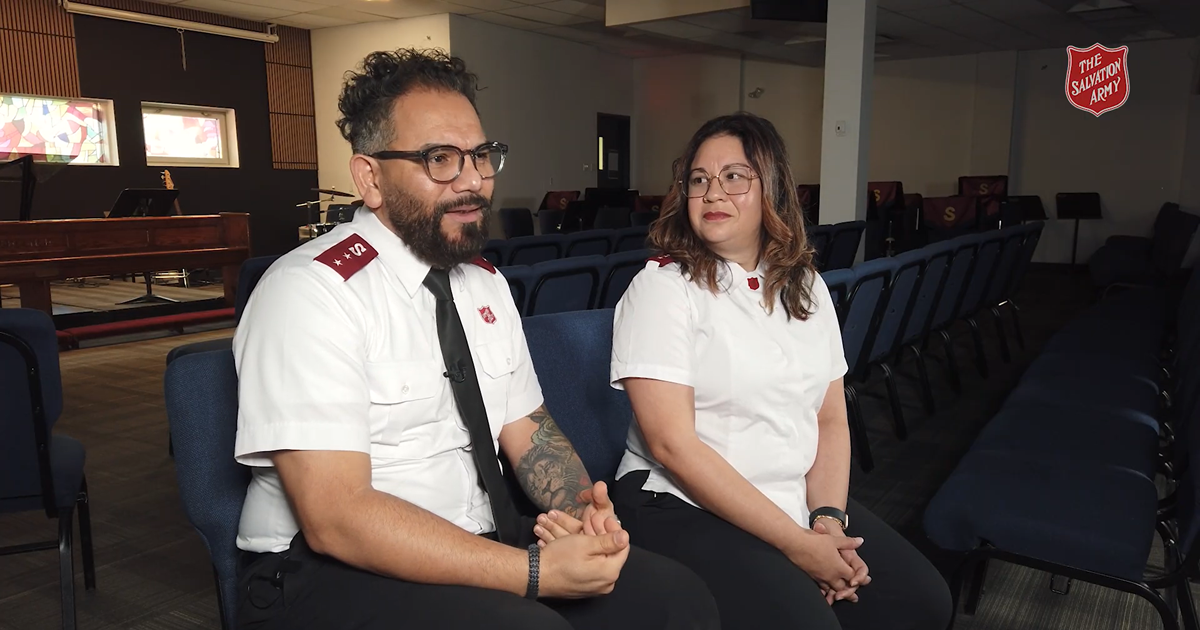 As an employee at The Salvation Army's territorial headquarters, I sometimes find it hard to see Jesus in the workplace. This is certainly not a judgment on my co-workers, but rather an acknowledgment that I spend my days staring at a flickering computer screen, filling out mountains of paperwork and trying to keep up with the constant barrage of e-mail correspondence.
As an employee at The Salvation Army's territorial headquarters, I sometimes find it hard to see Jesus in the workplace. This is certainly not a judgment on my co-workers, but rather an acknowledgment that I spend my days staring at a flickering computer screen, filling out mountains of paperwork and trying to keep up with the constant barrage of e-mail correspondence.
Part of the problem is that I'm looking through too narrow of a lens. If I focus my attention solely on the dynamic Jesus who preached to the crowds or healed the sick, my work in my little cubicle will always seem insignificant and mundane. But if I open my eyes to the whole life of Jesus Christ, then I'm able to discover value and meaning in what I do.
Charles de Foucauld writes about the hidden life of Christ. As followers of Jesus, we strive to imitate his life and witness, and so we look to the gospels and try to learn as much about Jesus as we can. Surprisingly, there is very little information provided about Jesus' early years before his public ministry—what many estimate to be his first 30 years on earth. This period of time is what Foucauld refers to as the hidden life of Jesus.
Foucauld argues that what's not written about Jesus tells us an important story. In Nazareth, where Jesus grew up, we find the place of ordinary life. We discover Jesus prior to his three years of ministry, the Jesus who lives in relative obscurity, the Jesus who must balance family life, work responsibilities, community living, prayer and spiritual formation. The crowds do not gather around this Jesus, news of his carpentry skills does not travel from town to town, and he does not need to escape on a boat to find peace and quiet.
It is in this period of time that Jesus receives the grounding he needs to prepare him for his active ministry. He spends time in prayer, works a humble job and studies the Scriptures. This is the hidden life of Jesus—a life so ordinary that it barely gets a mention in the gospel narratives—that was essential for the success of his public ministry.
Those of us who work in administrative offices spend little time on the front lines of ministry. We don't have the privilege of sitting at the bedside of someone who is sick, visiting someone in a prison, finding shelter for the homeless, helping someone break the chains of addiction or ministering in the home of a congregant. We do, however, have the opportunity to support these ministries. Our work behind our desks helps free up others to pursue these life-changing experiences.
The same holds true for other Salvationists. While we participate in important activities such as community care ministry, small-group Bible studies and children's programs, most of our time is spent at work and with our families. But without our financial, volunteer and prayer support, those called to serve in full-time ministry would be severely limited in their resources and effectiveness.
In some ways, this is the hidden life of The Salvation Army. And while it's important that we continue to silently fulfil our duties, we should never lose sight of the fact that what we do is valuable and meaningful, and that Jesus is with us. Just as Jesus identified with us by living simply, we, in return, can identify with him in the humble way we carry out our daily responsibilities.
Finding Meaning
1. Spend time in daily prayer. Ask God to help you see yourself and the world around you as he does. When we understand our role in life and ministry, we experience assurance and contentment.
2. Study the Scriptures. In difficult situations, Jesus often quoted from the psalms or prophets. It's essential that we, too, have a biblical grounding for our beliefs and actions.
3. Financially support the ministry of your church. Without our tithes and offerings, our churches, staff and programs would not exist.
4. Volunteer your time. While it's not feasible for all Salvationists to engage in full-time ministry, we can all participate in various outreach and discipling activities. If you're not involved in some sort of ministry, pray about it and speak with your corps officer/pastor.
5. Be diligent at work. No matter your profession, honour God in the way you carry out your responsibilities. Strive to find ways to show the love of Jesus Christ to your co-workers and those you serve.
6. Listen for the call to full-time ministry. At some point in our lives, God may ask us to leave our current jobs behind to serve him full-time as lay people or officers.
 John McAlister is senior editor for The Salvation Army's Editorial Department. From 2006-2008, he served in Zimbabwe with his wife, Rochelle. John and Rochelle have a son named Kieran Tinashe.
John McAlister is senior editor for The Salvation Army's Editorial Department. From 2006-2008, he served in Zimbabwe with his wife, Rochelle. John and Rochelle have a son named Kieran Tinashe.









Comment
On Friday, October 15, 2010, Robert Dicks said:
Leave a Comment